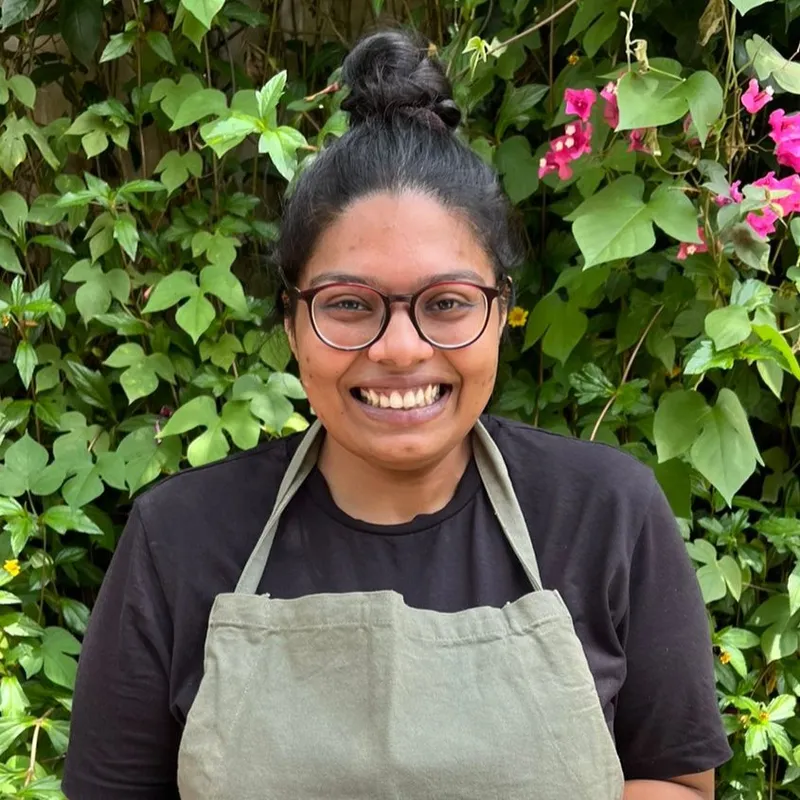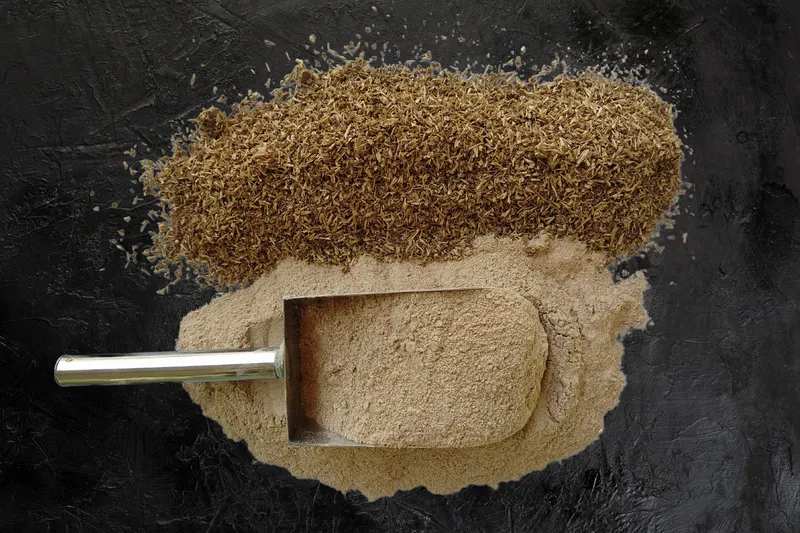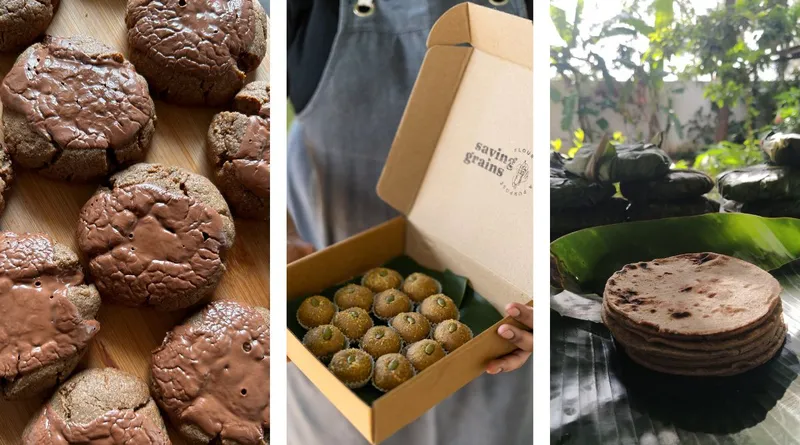Milling a circular economy: This woman makes flour, cookies, and more from spent grain from breweries
Bengaluru-based Saving Grains upcycles beer waste generated by breweries into flour, used to make products like crackers, cookies, bread, rotis, and ladoos.
Elizabeth Yorke first came across the concept of spent grain in 2016 while interning with food historian William Rubel, who was recreating bread from the 13th to 16th century. Spent grain is a by-product of the brewing industry and could be repurposed into flour.
Intrigued, she did her homework and found out that there were no concrete steps to upcycle this grain. And she wondered what the 70+ breweries in Bengaluru, her hometown, were doing with their spent grain.
“These micro-breweries produce about 12,000 kg of spent grain every day. It is either fed to animals because of its high nutritional content or ends up in a landfill.”
All of this led Yorke to start Saving Grains in 2021. The company upcycles beer waste generated by breweries into flour, which, in turn, is used to make crackers, cookies, bread, rotis, and even ladoos.
“There is a lot one can do by upcycling spent grain, and that is what we are exploring at ,” Yorke tells SocialStory.
The journey
Food has been an integral part of Yorke’s life—it always brought family and friends together. Therefore, it was no surprise when she pursued culinary arts at the Manipal Academy of Higher Education in 2011.
Following her education, she worked at multiple restaurants and hotels as a chef for six years, before she decided to explore food outside of the kitchen.

Elizabeth Yorke
During her internship with food researcher Rubel, Yorke learnt about the history of bread and the relationship between bakers and brewers.
She says earlier, brewers and bakers used to work together—in a closed-loop circular system by sharing common ingredients and their by-products.
“For instance, bakers gave brewers their leftover bread to convert into beer, and brewers gave bakers leftover grain to make bread. Earlier, bakers used to use grain because flour was an expensive commodity,” she explains.
In 2018, she joined the Future Food Institute Bologna, Italy, as a food innovation researcher to understand circular and sustainable food systems. Here, she gained more insight into the lifecycle of food and ways to minimise wastage.
Inspired by this and the untapped potential of upcycling the brewery grain, she started Saving Grains. But the journey was not without challenges.
Beer to breakfast
According to Yorke, many people believe spent grain is a waste product and do not like to consume it. Also, not many breweries understand the potential of this by-product.
“Repurposing spent grain is an extra effort for most stakeholders. Also, it has nothing to do with the beer production. This mindset needs to be changed, and a sense of ownership of material needs to come into place,” she adds.
Yorke explains that breweries use grains like barley and wheat to make beer, which they soak in hot water and mash to release sugars. Then, they remove the solids, leaving behind what's called spent grain.

Dried spent grain and flour
This leftover grain doesn't have alcohol but has “22% protein, 20% carbs, and 45% fibre”.
Saving Grains collects this by-product from local breweries and takes it to the facility, where it is dried and processed into products, including flour, cookies, granola, crackers, ladoos, biscuits, etc.
Yorke did not want to create another product-based business but intended to engage with people and foster a closed-loop system.
For this, she collaborated with Kutumba Community Centre in Bengaluru, where Saving Grains has set up a micro-unit that makes flour from spent grain.
“The people at the community centre can freely use the flour to make rotis. This collaboration has been done to put people and the community at the heart of the circular food economy,” she adds.
Currently, the team has three members, and people from the community centre also help with making goods.

Cookies, ladoos, and rotis made from spent grain
Saving Grains has partnered with four breweries in Bengaluru, including Geist Brewery Co. It functions on a back-to-brewery model, where after procuring the grains, the startup makes flour and other products and sells them back to the brewery.
In the B2B space, the company also caters to restaurants, food stores, and offices. It has collaborated with the Loafer & Co bakery, which uses spent grain flour in making its special loaf, Brewers Toast. Saving Grains has also collaborated with stores like Mäki Pâtisserie and other independent bakers.
On its website, Saving Grains has priced its products between Rs 100 and Rs 1,000. Recently, it started experimenting with coffee grounds—the remains after brewing coffee—in its various products and plans to launch these products soon.
Speaking of funding, Yorke says the company eventually wants to raise funds, but first, it wants to spread awareness and expand the market of upcycled goods while simultaneously repurposing spent grain into products.
In 2022, she started the Serial Upcyclers Club to educate people about spent grain and the larger concept of upcycling. In the future, she wishes to create more awareness about spent grain and upcycling through partnerships. She adds that she is open to collaborating with other community centres and breweries.
“There's a saying, ‘Waste is what is left when our imaginations fail’. It is time that we try to understand the potential of food as a resource and the strategies we can employ to reduce food waste," she adds.
Edited by Suman Singh







